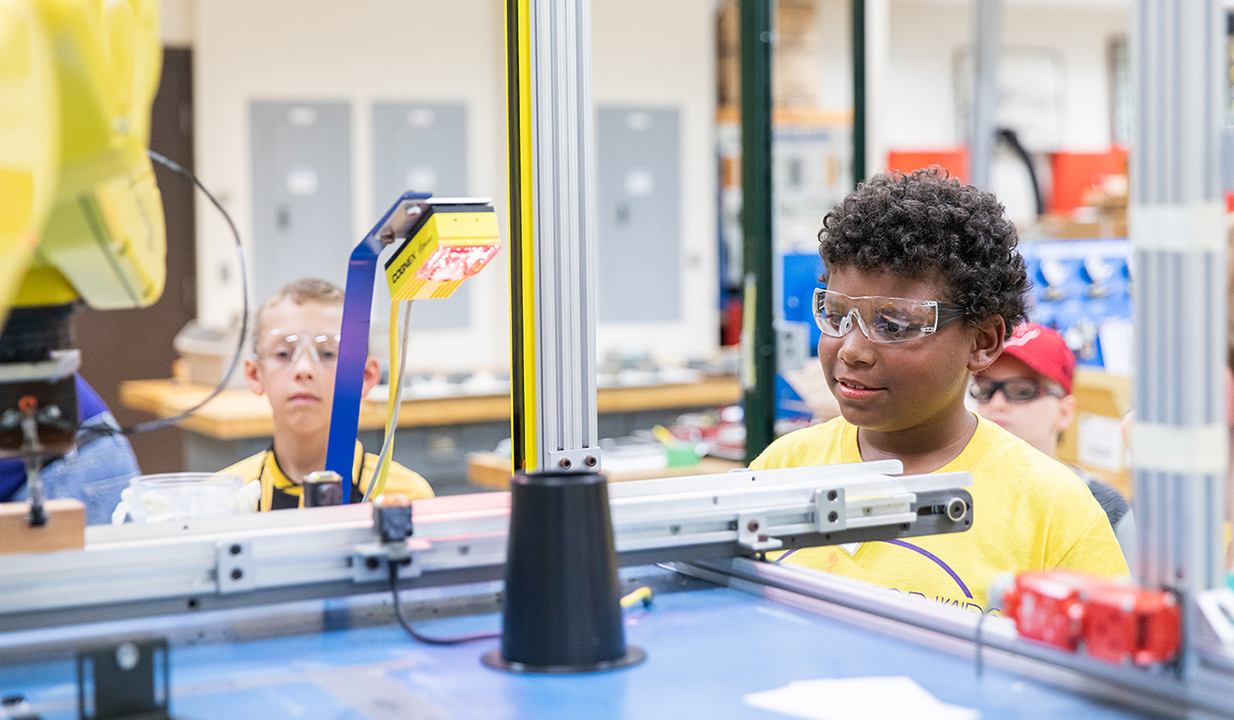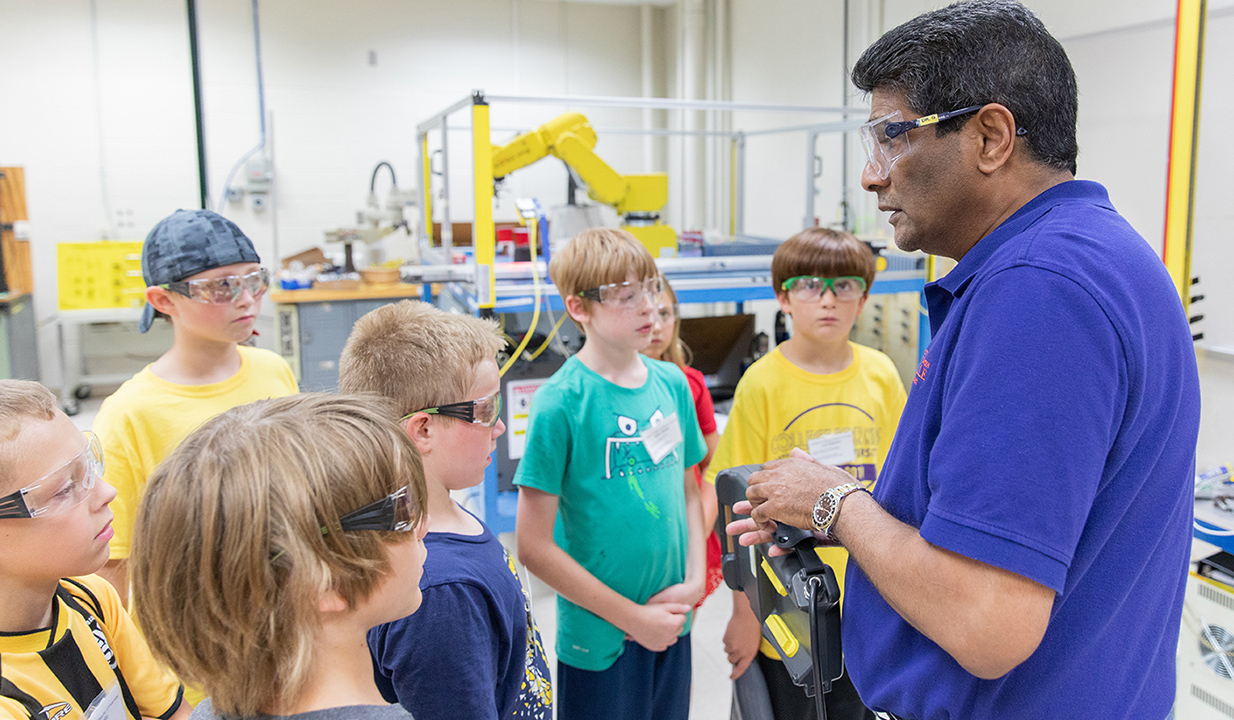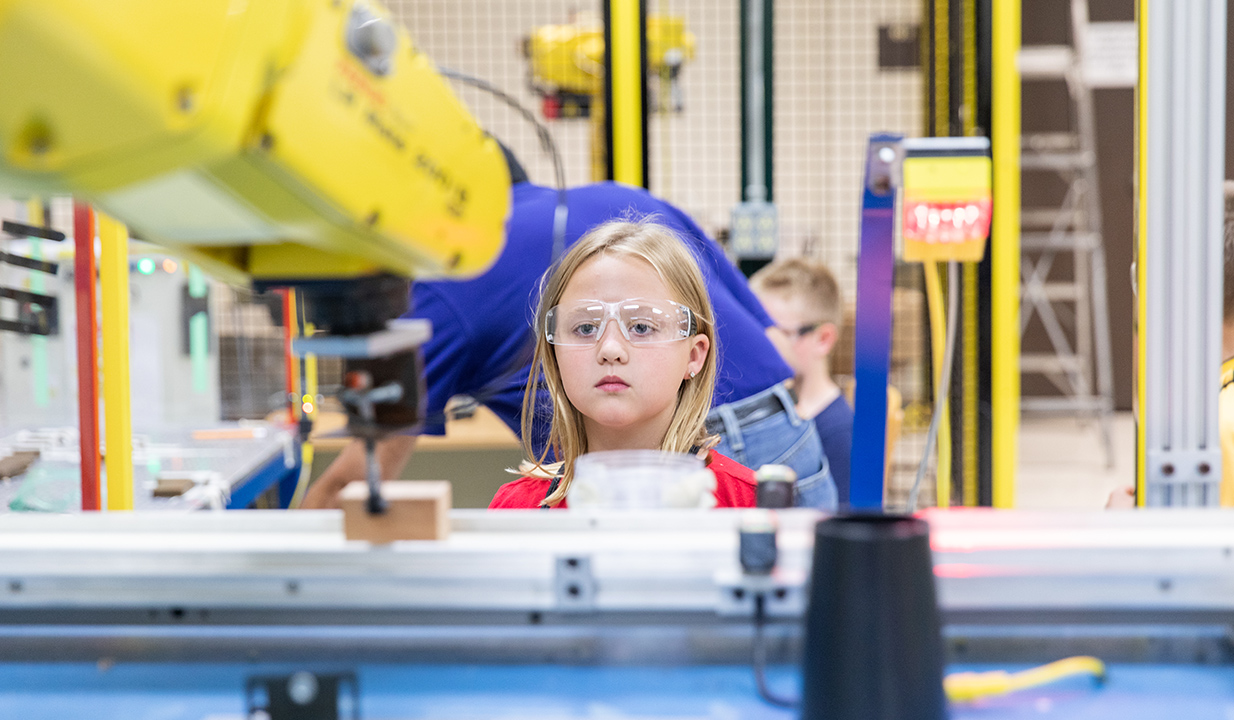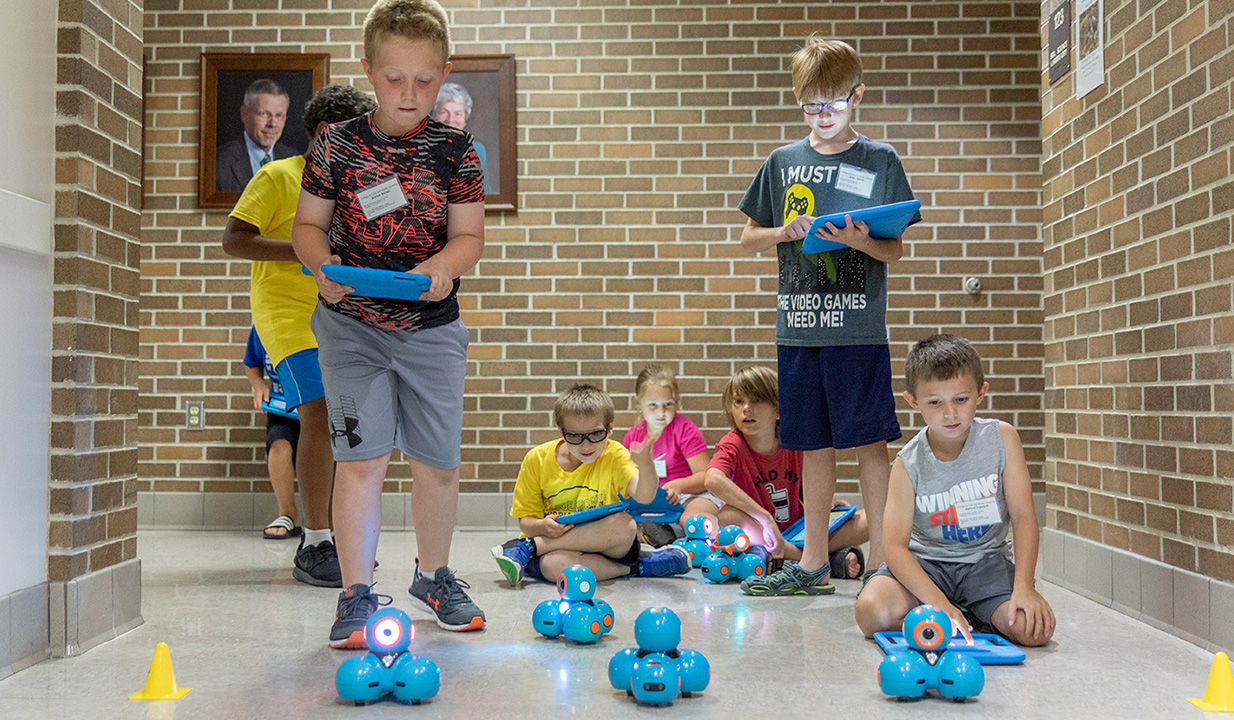



On July 8-11, two courses, Mission: Robots and LEGO Robotics, were hosted at the University of Wisconsin-Platteville by the Continuing Education Institute, College for Kids and Middle University. The program emphasized the science and technology fields and catered to students in the third and fourth grades and fifth, sixth, and seventh graders, respectively.
It was a new experience to spark children’s interest in science, technology, engineering and mathematics (STEM) and have fun building skills for the future. Interaction with real-life industrial robots was a highlight of the program.
"College for Kids and Middle University classes are hands-on and interactive," said Jessica Munz, community and event coordinator and programmer of College for Kids and Middle University. "To get kids actively engaged in learning, participants are able to explore subjects they may not have access to in their regular classrooms, especially science and engineering classes, which are taught in labs, by college professors."
STEM drives the nation’s innovation and competitiveness by generating new ideas, companies and industries. In the past decade, growth in STEM careers was three times larger than growth in non-STEM careers. Robots are integrated into daily lives, with surgeons, car washes, and a myriad of manufacturers using them daily.
The students had an exciting and learning experience exploring real-world challenges using robotics to investigate possible solutions. The courses were led by College for Kids and Middle University instructors Amanda Heisner, Mineral Point School District Options in Education coordinator/teacher, and Renee Douglas, Mineral Point School District special education paraprofessional.
The programs were fun and hands-on experiences that got students excited about the STEM world around them, inspiring an early love for STEM. During the program, the youth enjoyed projects that used 21st century skills, solving challenges to complete real world experiments, encouraging problem solving and collaboration — skills that would not only give the students an edge in school and careers, but also build confidence in STEM, and encourage all students to consider STEM careers while overcoming traditional boundaries.
The LEGO Robotics program for fifth, sixth, and seventh graders and the Mission: Robots for third and fourth graders consisted of a team effort to complete assigned tasks. Each team received a tablet like computer and a Lego Mindstorm kit. Teams had missions (challenges) to complete, requiring them to build a robot and develop programming to allow the robot to “solve” the real world challenges. Initially the youth programmed the LEGO® robot models to follow commands or experimenting with everyday materials to solve real-world problems. To complete the Mission Robots program, students moved from the LEGO® robots to the actual robots that are used in the Robotics and Automation program at the university. Led by Dr. Gamini, Robotics and Automation program coordinator, in the Industrial Studies program at UW-Platteville, the students programmed and implemented production cycles on actual robots. These robots cost over $50,000, and are essentially the same ones used on production floors, be it General Motors Tesla, Amazon, Best Buy, Adidas, Carrier, Mercury Marine, or Midwest Manufacturing.
Through robotics, students learn the fundamentals of engineering and computer programing, in addition to simple machines such as gears, levers, pulleys, etc., and how they are used to help humans do every day work.
College for Kids and Middle University programs’ LEGO Robotics and Mission: Robots was a fun learning experience that sparked children’s interest in STEM, while building skills for the future. The work on the actual robots was to encourage students to consider STEM careers, overcoming traditional boundaries.